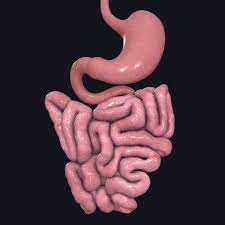Social Stress Could Age the Immune System, According to a New Study
- Feb 8, 2022
- 3 min read
It has long been known that the immune system declines with time, but a recent study has found that social stress, including discrimination, trauma and financial problems, can contribute to its premature aging.
Stress has been found to be detrimental to both physical and mental health, increasing risk of certain conditions such as ulcers and heart attacks as well as anxiety and depression. Researchers at the University of South Carolina asked over 5,000 adults in the United States over age 50 about causes of stress in their daily lives, and took immune cell counts from participants’ blood to create immune and stress profiles.

In the immune system’s aging process, the body produces different types of immune cells in different quantities than earlier in life, meaning it has a response of reduced efficiency to foreign threats.
The team measured T cells, crucial components of the body’s immune system that help protect it from infection. People with higher levels of stress had “older” immune profiles, with a lower percentage of the new, young disease-fighting cells (referred to as Naïve T cells) that are vital to preventing sickness.
Naïve T cells can destroy cancer cells and those infected with viruses, as well as eliminate senescent cells in the immune system. Senescent cells can be malignant because of their release of proteins that impact surrounding tissues. If a buildup of them occurs in the body, conditions associated with aging, particularly Alzheimer's’ disease and osteoporosis can arise.
The researchers found that chronic stress and life trauma were connected to a lower amount of Naïve T cells. On the other hand, different forms of discrimination were related to a greater percentage of terminally differentiated T cells - those that can no longer divide and work exclusively with one function.
Despite this, some of the correlations of stress with immune aging were reduced when unhealthy behaviors like smoking and drinking were taken into account. This suggests that stress leads people to habits that are detrimental to the body, which in turn ages the immune system. Experts suggest to be aware of and try to lessen such habits, to cut down on potential immune cell aging.
Similarly, diminishing the effects of social stress on the immune system doesn’t have to involve complex medical treatments: awareness of and action to minimize stressors can go a long way. Exercise and a good diet can positively impact the body physically, while finding hobbies or simply disconnecting from social media once in a while can benefit the mind.
Keeping sources of social stress in control can also be helpful: limiting contact with certain people and stepping away from tense situations where they occur in your life can help with stress’s mental footprint. New York psychotherapist Renee Eddy emphasizes the importance of understanding the effect of stress on yourself as a person, saying that this could help reduce difficulties in the long run.
Even so, there’s still more to learn about the way stress and the immune system are connected: this new research focused only on mainly white, older adults and relied on the participants to report their own stress levels. Scientists have yet to find out how stress can affect younger immune systems differently, or how they can change over time.
Regardless, it is important to keep in mind that the natural aging process is the biggest contributor to immune aging. Delaying immune aging can be done by similar strategies to delaying the effects of aging in general - working exercise into your schedule, having a healthy and balanced diet, and getting an adequate amount of sleep are all crucial elements of a positive lifestyle.




Comments